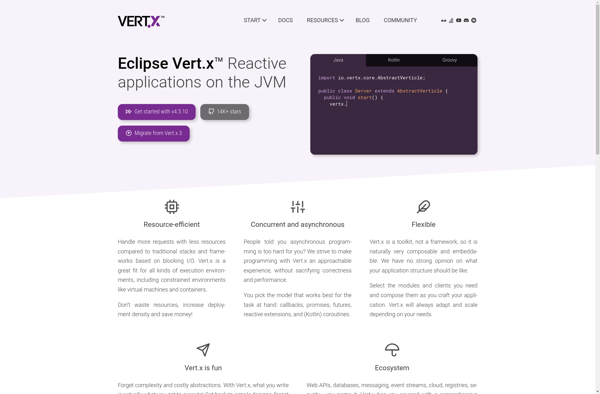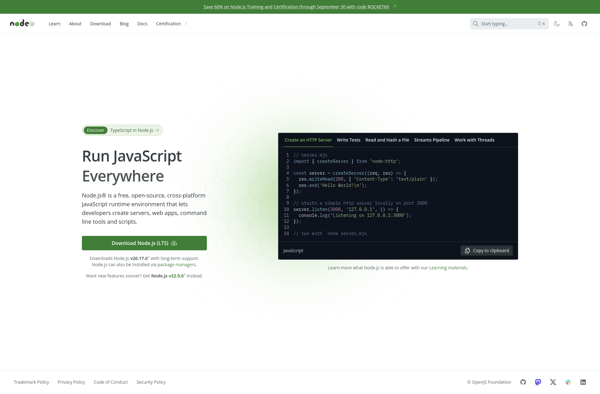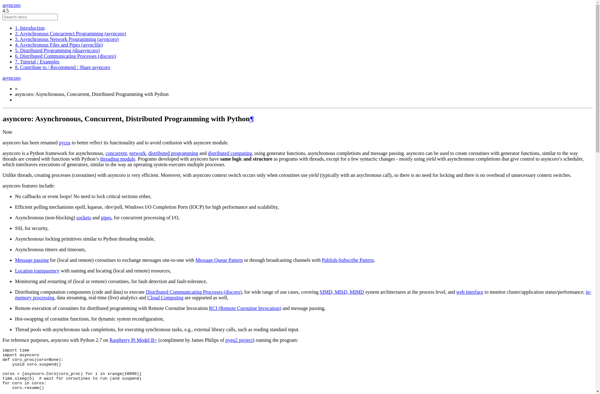Vert.x

vert.x: Open-Source Toolkit for Reactive Java Applications
vert.x is an open-source toolkit for building reactive applications on the JVM. It provides a event-driven, non-blocking architecture that makes it lightweight and efficient for real-time web applications and microservices.
What is Vert.x?
vert.x is an open source toolkit for building reactive applications on the Java Virtual Machine (JVM). It provides a scalable, event-driven and non-blocking architecture which makes it a great fit for building real-time web applications, API services, and microservices.
Some key features and benefits of vert.x include:
- Event-driven - vert.x uses an event loop and event bus allowing non-blocking code execution
- Scalability - it can handle a high number of concurrent connections and requests efficiently
- Polyglot - vert.x lets developers use Java, Groovy, Ruby, JavaScript and Kotlin for development
- Modularity - applications can be composed out of verticles (vert.x modules) and deployed independently
- Asynchronous APIs - APIs use callbacks instead of blocking threads and synchronous requests
- Lightweight - has a small memory footprint and is perfect for building reactive microservices
vert.x is used by companies like Red Hat, IBM, AT&T, Salesforce and many startups to build modern, scalable and resilient applications. It has integration support for frameworks like Spring and a vibrant ecosystem of open source components and tooling.
Vert.x Features
Features
- Event-driven architecture
- Non-blocking I/O
- Polyglot programming
- Microservices
- Reactive extensions
- Clustering and HA
Pricing
- Open Source
Pros
Cons
Official Links
Reviews & Ratings
Login to ReviewThe Best Vert.x Alternatives
Top Development and Web Frameworks and other similar apps like Vert.x
Node.js

NoPrint.js

Asyncoro
